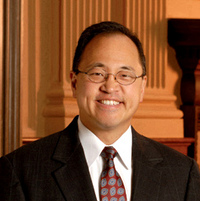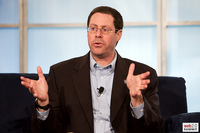 So suppose for the moment that net neutrality is an antitrust issue.
Does this bill fix antitrust law enough to deal with it?
So suppose for the moment that net neutrality is an antitrust issue.
Does this bill fix antitrust law enough to deal with it?
Federal lawmakers have introduced yet another network neutrality bill, but this time with a focus on fair trade issues.And does this fix the problems Google and Ebay complain about?This week, U.S. Rep. John Conyers, who chairs the House Judiciary Committee, has introduced legislation that addresses the issue by labeling it an antitrust matter. Conyers’ H.R. 5994 would ban discriminatory network management practices by amending the Clayton Act.
The bill, labeled the Internet Freedom and Nondiscrimination Act, would require carriers to promote competition and allow people to use any device they want to on the carriers’ networks. The bill makes exceptions for emergencies, criminal investigations, parental controls, marketing, and improvements to quality of service.
Under the Detroit Democrat’s proposed legislation, ISPs could give preference to certain types of data, but they must give the preference regardless of the data source. It would ban ISPs from discriminating based on content, applications, or services.
— Lawmakers Eye Net Neutrality As Anti-Trust Issue, The Internet Freedom and Nondiscrimination Act would require carriers to promot e competition and allow people to use any device they want to on the carriers’ networks. By K.C. Jones, InformationWeek, May 9, 2008 05:42 PM
Meanwhile, a cosponsor sums it up:
U.S. Rep. Zoe Lofgren, D-Calif., has co-sponsored the legislation.“Recent events have shown that net neutrality is more than a hypothetical concern. We need a meaningful remedy to prevent those who control the infrastructure of the Internet from controlling the content on the Internet,” Lofgren said. “This legislation will help guarantee that the innovative spirit of the Internet is not trampled.”
-jsq







